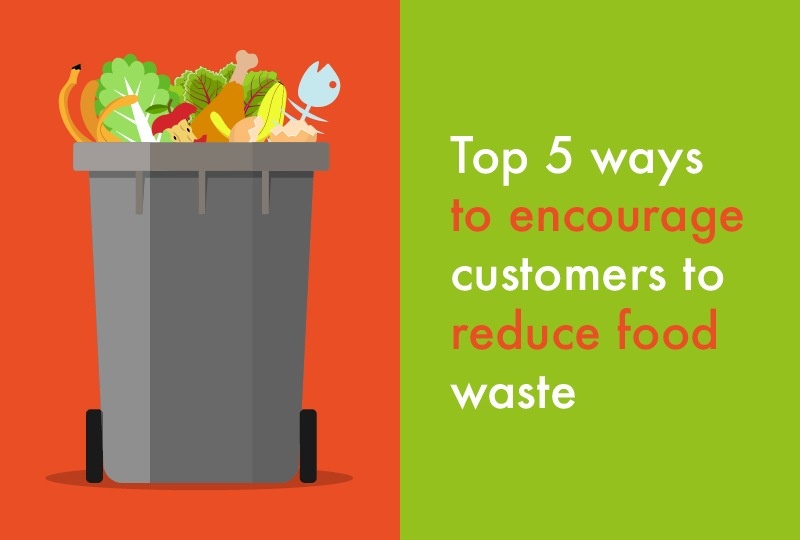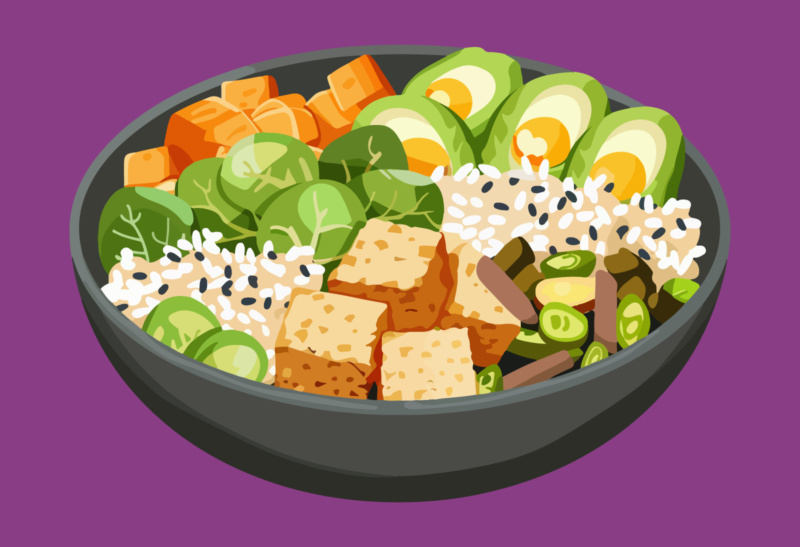It’s great to get involved with WRAP’s ‘Food Waste Action Week’ campaign, aimed at educating the public on food waste and encouraging a change in old habits to reduce the amount of food waste generated.
Did you know that 81% of UK citizens are concerned about climate change but only 32% see a clear link between this and food waste? Furthermore, 2 in 5 citizens never think about food waste when eating out.
This is a great opportunity for restaurants, hotels, universities and other hospitality companies to encourage customers to learn about food waste and how to reduce it, helping to achieve business goals, save money, reduce emissions and also promote your organisation’s CSR values.
Bidfood has set in place ambitious targets on both reducing food waste and carbon emissions, and we are keen to support our customers with their sustainability initiatives and have put together some ideas below in which hospitality and foodservice businesses can get involved with this campaign.
1. Highlight low waste recipes

Do you have a recipe which has little to no waste? Can you promote this to your customers this week?
Some examples could be veggie pie and cauliflower soup . This is an easy way of promoting reducing food waste and giving a tangible action your customers can take straight away. You can also monitor the uptake and talk about this in later communications to continue promoting your values in this area.
Why not add the item to a specials board, or turn your whole specials board into a low waste meal promotion for the week?
2. Offer the option to have a smaller portion size
Customers have varying appetites so perhaps you could have a few options on your menu which can adapt to this and prevent leftovers.
You could offer your customers the option to choose a smaller portion size for a small discount which could benefit health conscious customers, by helping to reduce overeating, get customers thinking about food waste, as well as make customers happier if they hate leaving food on their plates.
Are there any dishes which are often not finished, perhaps large rice or pasta bowls which may be too filling for customers? Exploring the reasons behind why these are often not finished and adapting them could be a good way to address this.
It is well documented that senior citizens have smaller appetites, perhaps you could tailor an option to people over a specified age? To avoid a revenue drop, think around ideas to upsell to those customers by including a coffee or light dessert with a small plate option for the same price.
3. Help customers ‘know what to cook’
A recent article in the Guardian stated that 1 in 5 consumers in the UK waste food as they ‘don’t know what to cook’. By providing simple easy to follow recipes at point of sale, on your website, on social media, at tables or on packaging, you could be helping customers not only reduce food waste, but eat healthier and more sustainably too, which could result in improving your brand reputation and loyalty.
Recipes could use items which are commonly thrown out such as vegetables that quickly deteriorate or bread that has gone stale. How about bread bake or pizza?
During lockdown, Pizza Express regularly shared recipes to some of their most popular dishes, keeping their brand at the front of customer’s minds whilst reaching others who might not be in their usual consumer base.
4. Explore the use of food waste apps
One way of preventing food waste as well as engaging customers is by using one of the many apps focused on this, such as Too Good to Go, Olio and Karma.
These food waste apps do a great job of matching bargain-conscious and/or environmentally minded consumers with short life food. This could help to grow brand loyalty, as well as help recover costs whilst ensuring good food doesn’t go to waste.
Too Good to Go and Karma advertise food to people in the local area which is then sold at a discounted price to avoid it going in the bin. Olio advertises food from both individuals and businesses that they are happy to give away.
There are many more, so taking time to explore these options could be a great way of reducing your food waste.
5. Promote the link between food waste and climate change
With headlines often talking about the large carbon footprint of meat and the impact that reducing meat in the diet can have on the environment, we are starting to see a shift in consumers turning to a meat free or flexitarian diet.
A recent study published in The Lancet showed a decrease of around 17% in daily meat consumption over the last decade, with the proportion of meat consumers also decreasing by around 3%. Climate change and environmental impacts are thought to be a key driver behind this.
30% of global CO2e greenhouse gases are created from the production and distribution of food, with approximately 25% of food for human consumption ending up as food waste – 75% of which could have been eaten!*
With many UK citizens purchasing from a hospitality venue each month, you have a great opportunity to engage your customers – perhaps you can introduce a dedicated food waste bin, and promote key statistics above this to get customers thinking about the food they are throwing away.
If you have space, you could add more bins for each category – meat and dairy, fruit and vegetables – to demonstrate categories which have bigger impacts on the environment.
Consumers have already demonstrated they can reduce waste – during lockdown WRAP found a 43% decline in food waste due to positive food management behaviors. However, waste levels are once again rising and are now reported to be back at 2018 levels , so urgent action is now needed to address this huge contributor to climate change.**
Hospitality and food service outlets can use their influence to drive down emissions whilst also reducing costs and improving brand reputation. We hope our ideas give you food for thought and inspire you and your colleagues to explore further ways in which your company can have an impact in this area.
For more ideas, resources, training and information, take a look at our food waste page from our Unlock Your Menu campaign. Here you can find ideas from our chef team and resources such as the Love Food Hate Waste website and Guardians of Grub page provided by WRAP.
We would love to hear your ideas and actions – share them with us via Facebook, Twitter, Instagram or LinkedIn using @BidfoodUK #FoodWasteAction
What are we doing to reduce food waste? Learn more about how we are cutting down on our waste, as part of a larger effort to become a positive force for change here.
Hungry for more? Check out our other blogs on food waste:
*WRAP, 2013
**WRAP, 2021



